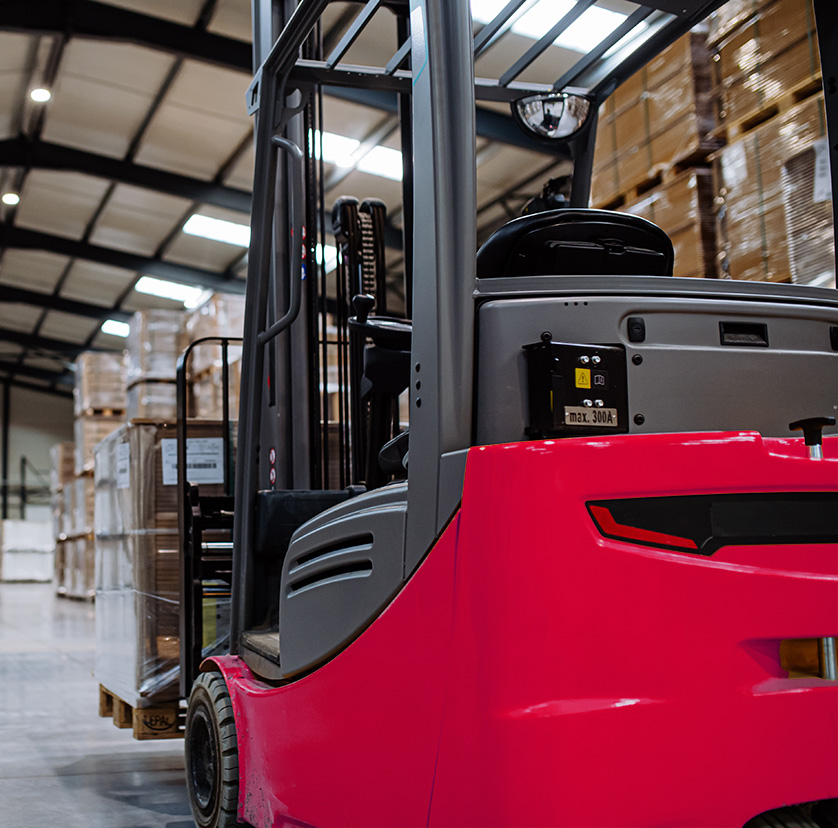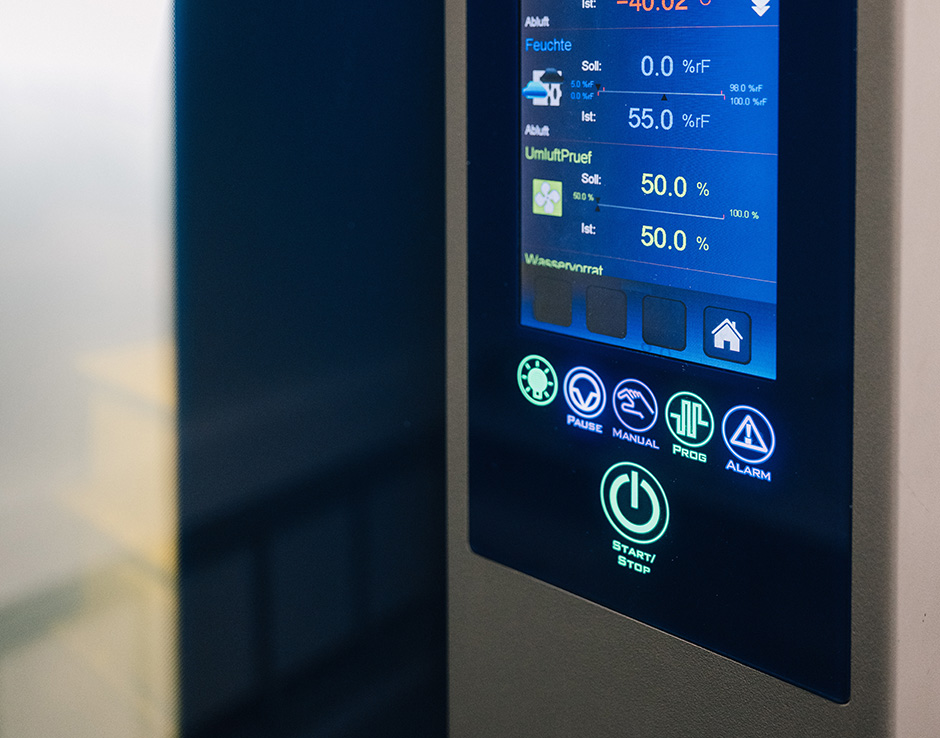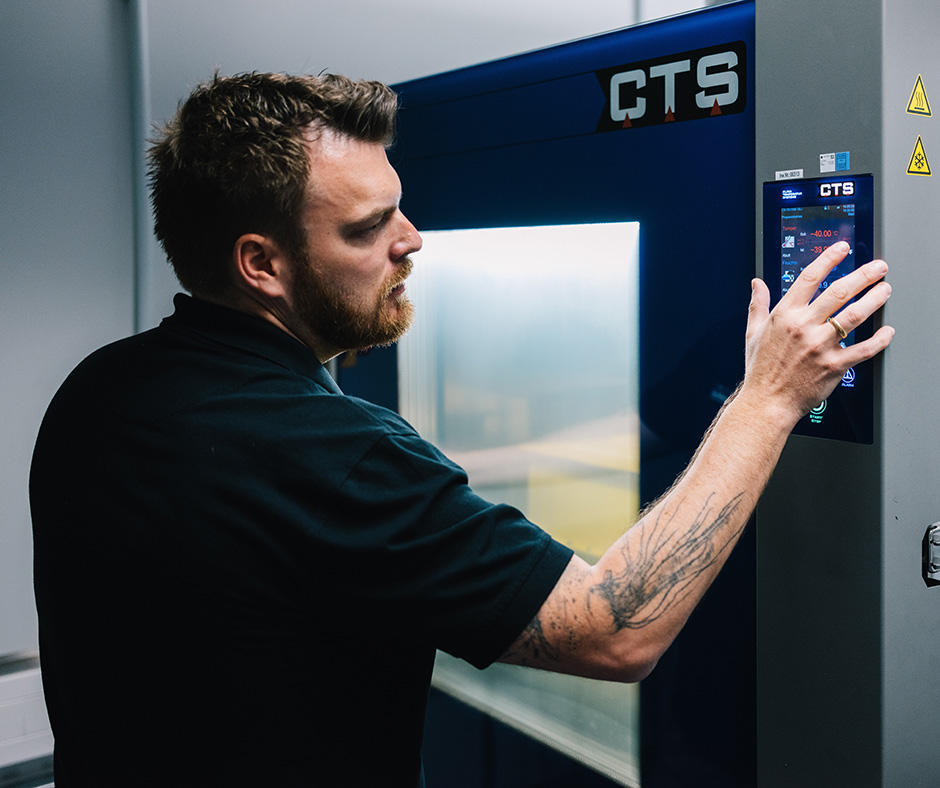IEC 62620

IMPORTANT IN BRIEF
IEC 62620
IEC 62620 is an internationally recognised standard that deals with the performance evaluation and test conditions for rechargeable lithium batteries and batteries with alkaline or other non-acid electrolytes in industrial applications, including stationary applications. It sets clear requirements for capacity, charging and discharging behaviour, and cycle stability, and serves as an important quality benchmark for applications such as energy storage systems, road vehicles, forklift trucks, railway technology, and uninterruptible power supplies. Companies that develop or use industrial accumulators benefit from IEC 62620 because it creates a uniform standard for safety and reliability.
Batteryuniversity is an independent testing laboratory with extensive expertise in testing and certifying lithium cells. In accordance with IEC 62620, we perform all necessary tests to confirm the performance and safety of your batteries. This includes capacity measurements, cycle and ageing tests, mechanical stress tests and safety analyses that assess potential risks such as overcharging, deep discharge or short circuits. Our experienced team ensures that all tests are carried out in accordance with standards and with the highest precision, so that you receive certification smoothly and without delays.

Why we are your ideal partner for certification in accordance with IEC 62620
Accredited testing laboratory
As an officially recognised Certified Body Testing Laboratory (CBTL) in the IECEE CB scheme, we are authorised to carry out tests in accordance with IEC 62620. Successful certification enables you to sell your industrial accumulators worldwide and confirms their performance and safety compliance.
Extensive experience
For many years, we have been supporting companies in the testing and certification of lithium cells. Thanks to our in-depth understanding of international standards such as IEC 62620, we guarantee professional testing and sound evaluations of your battery systems.
Complete test coverage
In our testing laboratory, we offer you all testing procedures for IEC 62620 from a single source. From capacity and service life tests to electrical and mechanical stress tests and detailed safety analyses, we cover all requirements of the standard in full. Particular attention is paid to potential risks such as overcharging, deep discharge or mechanical impacts.
Rapid market launch
Our optimised testing procedures enable the necessary tests to be carried out quickly and accurately. In this way, we support you in bringing your industrial lithium cells to market without delay and in reliably meeting regulatory requirements.
Innovative laboratory technologies
Our testing laboratory is equipped with sophisticated measurement and testing systems to ensure reliable evaluation of battery performance and safety. We test both individual cells and complete industrial energy storage systems and continuously invest in the expansion of our testing technologies.
Targeted testing procedures
Industrial batteries for applications such as road vehicles, forklifts and railway technology differ significantly in their requirements. That is why we develop customised testing strategies that are precisely tailored to your specific battery characteristics. This ensures that your product optimally meets the IEC 62620 requirements and that you receive the best possible certification strategy.

The significance of IEC 62620 for industrial lithium batteries
Industrial and energy storage applications place high demands on rechargeable lithium-ion batteries. In addition to reliable performance over many charging cycles, they must also function safely under demanding conditions. IEC 62620 therefore specifies mandatory requirements for the capacity, cycle stability, electrical performance and general safety of industrial secondary cells. The aim of the standard is to create a uniform basis for evaluation for manufacturers, testing laboratories and certification bodies so that batteries with defined quality and safety standards can be placed on the market worldwide.
Compliance with this standard is particularly important for companies that manufacture or use accumulators for energy storage systems, road vehicles, forklift trucks or industrial applications. A battery design certified according to IEC 62620 not only facilitates market access, but also builds trust among customers and partners by demonstrating the battery's performance and safety. As an independent testing laboratory, we support you in meeting the requirements of IEC 62620 and guide you through the entire certification process.
Download CBTL certificate
IEC 62620 certification process – How we test your battery
The path to IEC 62620 certification involves several testing phases to ensure that the battery meets all performance and safety requirements. First, a detailed analysis of the battery parameters is carried out, including capacity, discharge behaviour and chemical composition. The battery then undergoes a series of standardised tests specified in IEC 62620. These include cycle stability tests to evaluate the battery's service life, as well as mechanical tests to ensure that the cells continue to function reliably even under shock or temperature fluctuations.
In addition to performance tests, safety aspects also play a key role. Our experts test the battery for overcharging, deep discharge and potential safety risks to ensure that it can withstand the high demands of industrial applications. Once all tests have been completed, you will receive a detailed test report that serves as the basis for certification. With our many years of experience and state-of-the-art testing technology, we ensure fast and smooth certification so that your battery meets all regulatory requirements and can be safely brought to market.
FREQUENTLY ASKED QUESTIONS & ANSWERS
IEC 62620 is an international standard that specifies requirements for the performance and safety of accumulators and batteries with alkaline or other non-acid electrolytes for industrial applications. It ensures consistent quality and reliability, which is essential for manufacturers, users and testing institutes.
While IEC 62620 focuses on the performance and testing requirements of industrial lithium batteries, IEC 62619 deals with safety aspects. Both standards complement each other to ensure both the functionality and safety of batteries.
IEC 62620 covers tests for the capacity, cycle stability, charging and discharging properties, and environmental resistance of lithium batteries. These tests ensure that the batteries meet the required performance parameters and function reliably under real-world conditions.
The standard applies to rechargeable lithium cells and batteries used in industrial applications such as energy storage systems, electric vehicles and other high-performance applications. Consumer products such as smartphone batteries are not covered by its scope.
Manufacturers, suppliers and operators of industrial battery systems benefit from certification because it proves compliance with international standards. This facilitates market access, increases customer confidence and ensures that products meet the required quality standards.
IEC 62620 contributes to sustainability by ensuring that lithium batteries are operated under safe and efficient conditions, thereby optimising their service life and performance. In addition, the standard takes environmental compatibility aspects into account, which indirectly promotes the recycling and reusability of batteries by ensuring their quality and safety throughout their entire life cycle.
Our many years of experience, comprehensive expertise and modern testing laboratories enable efficient and reliable certification in accordance with IEC 62620. We guide you through the entire testing process and offer tailor-made solutions for your specific requirements.
INFORMATION ABOUT THE AUTHOR
Alexander Roth
Alexander Roth is head of the test laboratory at Batteryuniversity and an expert in the testing and certification of lithium-ion batteries.







